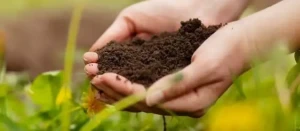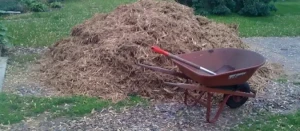SEARCH RESULTS > ARTICLES > Enrich
As gardeners, we understand that healthy soil is the cornerstone of successful gardening. Regenerative gardening practices not only enhance soil fertility but also contribute to overall ecosystem health. By nurturing the soil, we can cultivate thriving gardens while minimizing environmental impact. Here are 10 regenerative gardening tips to help you boost soil health and vitality. Learn More
As gardeners, we are stewards of the land, nurturing and coaxing life from soil, sun, and water. In our pursuit of abundant harvests and flourishing landscapes, we often seek methods that not only yield bountiful crops but also sustain the delicate balance of our ecosystems. One such approach that has gained significant attention and acclaim is agroecology. Learn More
Delving into the psychological aspects of permaculture, this article explores how gardening and working with the land can have profound positive effects on mental health and well-being. It discusses the therapeutic benefits of spending time in nature, cultivating mindfulness, and fostering a deeper connection to the environment through permaculture practices. Learn More
Learn why building guilds around your trees benefits your garden by fostering ecosystem health, promoting biodiversity, and enhancing soil fertility. Learn More
The no-dig method, also known as no-till gardening, is a sustainable and organic approach to cultivating vegetables without disturbing the soil structure. This gardening technique has gained popularity among gardeners due to its numerous benefits for soil health, plant growth, and overall garden productivity. Unlike traditional gardening methods that involve tilling, digging, and turning the soil, the no-dig method emphasizes minimal soil disturbance. Instead of breaking up the soil, gardeners layer organic materials on top of the ground to create nutrient-rich soil beds where plants can thrive. By implementing the no-dig method, gardeners can improve soil structure, enhance soil fertility, and promote beneficial soil organisms such as earthworms and microorganisms. Additionally, this approach helps to conserve water, reduce weed growth, and minimize soil erosion. Learn More
Electroculture gardening, an age-old practice gaining renewed attention, involves the application of electrical stimulation to enhance plant growth, health, and productivity. This innovative technique harnesses the power of electrical fields to optimize soil conditions and promote vibrant, resilient plants. Learn More
Mulching is a fundamental practice in gardening that offers a multitude of benefits to both plants and soil. Whether you're a seasoned gardener or just starting out, understanding the principles and techniques of mulching can greatly enhance the health and beauty of your garden. Learn More
Gardening is not just about growing beautiful flowers or tasty vegetables; it's about creating a sustainable and harmonious ecosystem. Regenerative gardening practices aim to restore and enhance the health of the environment, soil, and biodiversity. In this article, we will explore various regenerative gardening techniques that empower gardeners to contribute positively to the planet. Learn More







